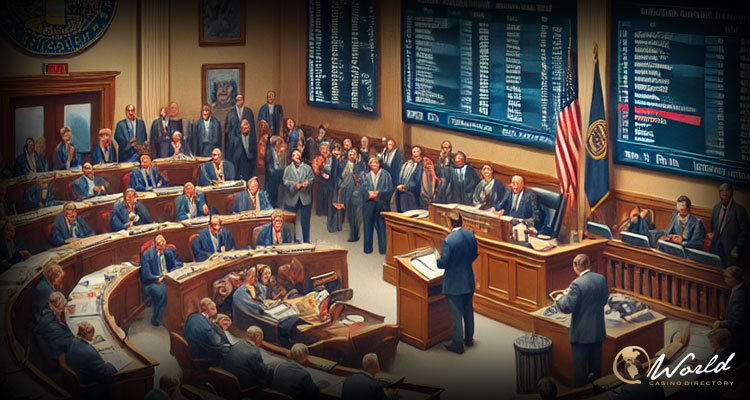In a decisive move to address fiscal challenges, Nebraska could see an item on the November ballot to legalize online sports betting following Governor Jim Pillen’s announcement. The governor highlighted the significant untapped revenue currently lost to neighboring states due to unregulated online gambling. “Online sports betting is real and it’s happening in the state,” Governor Pillen stated. “Whoever wants to do it is doing it, and we’re giving all the revenue to our neighbors.”
Impetus for early legislation:
A market study from GeoComply underscores the urgency of this legislative action, recording over 2 million blocked online sports bets in Nebraska in the first half of the year alone. To capture this lost revenue sooner, Senator Eliot Bostar introduced a constitutional amendment during a special legislative session. If passed, this could expedite the legalization and taxation of online sports betting by two years, potentially by November 2024, instead of waiting until 2026.
According to Lynne McNally of WarHorse Casino and the Nebraska Horsemen, not acting swiftly on this initiative could mean a revenue loss of approximately $100 million. “We agree that property taxes in the state of Nebraska are far too high, and anything that we can do to help be part of the solution, we’d be proud of doing that,” McNally expressed. This sentiment is echoed by stakeholders who see significant fiscal benefits in legalizing online sports betting sooner rather than later.
Nebraska Public Media reports that, while the proposal is financially promising, it also brings to the forefront the ongoing debate about the social implications of expanded gambling. Critics point to potential increases in gambling addiction and related social issues. However, proponents argue that since Nebraskans are already participating in online betting through various means, regulating and taxing this activity would be pragmatic, thus turning a prevalent social behavior into a public good.
A democratic approach to gambling legislation:
If successful, the initiative will place the decision directly in the hands of Nebraska voters, aligning with democratic principles. “It’s a low-risk issue—all you’re really doing is letting people vote on it,” noted Lance Morgan, CEO of Ho-Chunk Inc., as reported by Lincoln Journal Star. This approach allows for a community-based decision-making process on whether to embrace online sports betting as a legitimate source of state revenue and a contributor to property tax relief.
The discussion on online sports betting is setting the stage for a significant transformation in Nebraska’s approach to gambling and tax relief. As the November ballot approaches, stakeholders from all sectors are aligning to debate and determine the future of sports betting in the state, potentially reshaping Nebraska’s economic landscape and its approach to public welfare.



